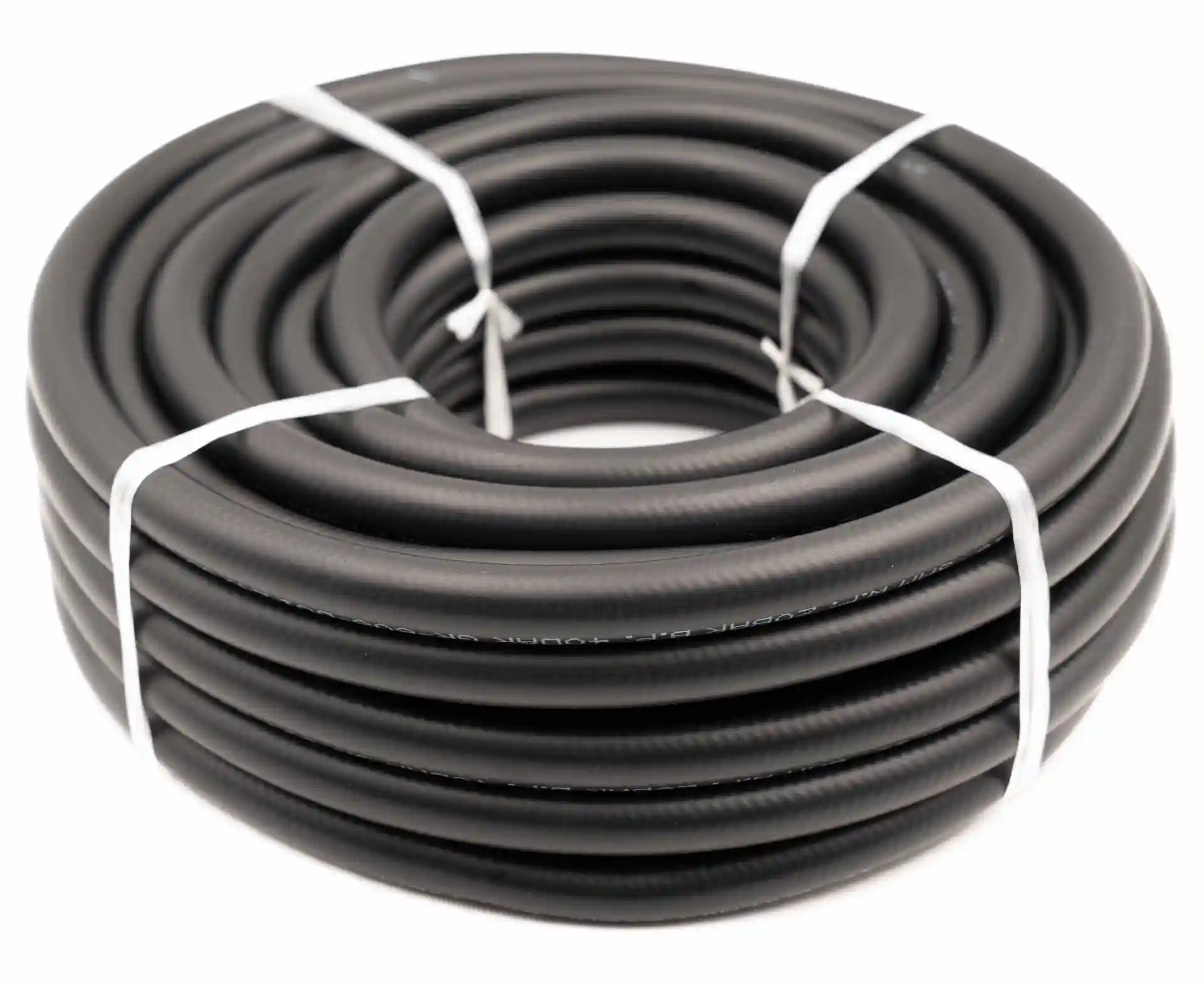PTFE hose: a revolutionary change in industrial fluid transmission
2025-06-20 13:41:28
In the modern industrial field, the advancement of fluid transmission technology has greatly promoted the development of various industries. Among them, the emergence of polytetrafluoroethylene (PTFE) hose and its excellent corrosion resistance have reshaped the industrial fluid transmission standards.
1. The unique material of PTFE hose
PTFE, also known as Teflon, is a fluorine-containing polymer. This material is widely used in many fields such as chemical industry, petroleum, and food processing due to its high corrosion resistance and non-stickiness. The strong fluorine-carbon bonds of the molecules in the PTFE molecular structure ensure the stability of the material even under extreme conditions, and almost no chemical reaction occurs when it comes into contact with many chemicals.
Another notable feature of PTFE material is its ability to maintain stable physical properties over an extremely wide temperature range. From extremely cold temperatures to higher temperatures, PTFE hoses can always maintain flexibility and strength. This feature makes it extremely valuable in fields that need to withstand a variety of working environment challenges.
2. The industrial revolution of corrosion resistance
In many industrial applications, fluids often contain corrosive chemicals. Traditional fluid conveying materials such as rubber or metal are often easily failed by corrosive chemicals, resulting in leakage or contamination. In these cases, PTFE hoses are particularly outstanding due to their excellent corrosion resistance.
1. Chemical processing industry: In chemical processing, the presence of acids, alkalis and organic solvents poses a severe challenge to the material selection of conveying pipes. PTFE hoses can safely transport highly corrosive solutions such as nitrate, sulfuric acid and nitric acid, which makes them widely used in chemical plants.
2. Pharmaceuticals and biotechnology: Cleanliness and sterility requirements in pharmaceutical equipment are extremely high. The smooth and non-stick surface of PTFE material makes it very easy to clean, and its strong resistance to chemical contamination ensures the purity of drug production.
3. Food and beverage industry: In addition to its corrosion resistance, PTFE hoses also meet food safety standards. Its non-stick surface enables it to easily handle viscous liquids such as syrups and prevents the growth of microorganisms, ensuring hygienic safety during production.
3. Improve the efficiency of fluid transmission
In addition to corrosion resistance, PTFE hoses reduce friction losses in fluid transportation due to their smooth internal surface, greatly improving energy efficiency. This ability to reduce fluid resistance is directly reflected in the improvement of production efficiency.
In addition, the flexibility and lightness of this material make installation and operation easier, and various complex hose layouts can be realized according to equipment requirements. Therefore, in scenarios where a large amount of equipment maintenance and modification is required, the use of PTFE hoses can greatly reduce the intensity of manual labor and improve the economy of the overall system.
4. Environmental protection and sustainability
With the current global attention to sustainable development, the use of PTFE hoses is also regarded as an environmentally friendly option. Due to its long life and durability, it reduces the waste caused by frequent material replacement. In addition, PTFE materials do not release toxic gases when incinerated at high temperatures, and their disposal has little impact on the environment.
5. Future development direction of PTFE hoses
With the advancement of science and technology and the emergence of new industrial needs, the application field of PTFE hoses is expected to expand further. In the future, new technologies will continue to optimize the performance of PTFE, such as enhancing its mechanical strength and pressure resistance. Advances in smart manufacturing technology may enable real-time status monitoring of PTFE hoses during use, reduce unnecessary downtime, and improve production efficiency.
At the same time, with the increasing environmental pressure and the development trend of the green economy, the environmental protection characteristics of PTFE will receive more attention. Possible green improvements will further enhance the market penetration of PTFE in various industries.
PTFE hoses are gradually reshaping the standards of modern industrial fluid transmission with their unparalleled corrosion resistance, excellent fluid delivery capabilities and environmental protection characteristics. Through continuous technological innovation, PTFE hoses, as a new material, have the potential in the industrial field that cannot be underestimated. In the future, technological advances and environmental protection trends will continue to promote the widespread use of PTFE hoses in more application scenarios, driving the industry towards a smarter and greener future.